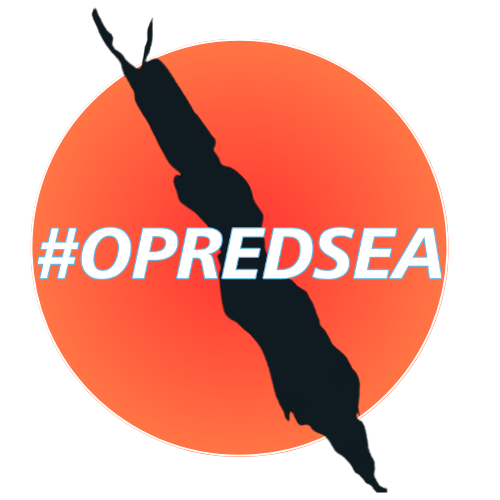The Issues
“Nature does not respect human set boundaries, nor do climate change and pollution.”
Despite their significant economic and recreational value, coral reefs face severe threats from pollution, disease, and habitat destruction. Damaged reefs are less capable of supporting the diverse marine life and nearby communities. A decline in the reef's biodiversity also reduces its appeal as a tourist destination, impacting the tourism industry and professional divers active in exploration and training sectors who depend on this income stream.
However, we have failed to protect our coral reef ecosystems effectively. Underwater biodiversity and biomass continue to decline despite various pledges and declarations to safeguard them. A significant reason for this failure is that professional divers lack the necessary equipment, training, support, cooperation and financial resources to combat these losses.
In the Southern Red Sea, climate change is the primary driver of biodiversity loss, with heat stress destroying hundreds of square kilometers of reefs. In the Northern Red Sea, unsustainable shoreline, agglomeration and industrial development has led to the destruction of hundreds of kilometers of fringing reefs, making way for man-made beaches plagued by erosion and sedimentation issues, which smother the Red Sea's nurseries; not to mention the pollution stemming from the agglomerations, desalination plants and high maritime traffic to and from the Suez Canal.
Another general issue is the lack in cooperation, sharing of knowledge and resources between Red Sea countries and their respective scientific, educational and enforcement agencies. While most individual countries lack the basic aforementioned resources to be well equipped, trained and knowledgeable.
The Solutions
Enhance cooperation between official institutions, N.G.O's, educational facilities and local stakeholders, this on a Red Sea wide basis, but also regionally and locally. Connecting them thereafter with a worldwide community of knowledge and support.
Creating an alliance for sustainable, eco-friendly, coastal development, putting people and local stakeholders in control to shape local priorities, value their greatest assets & re-vitalize their shorelines.
For effective protection of marine resources in a capitalism driven society, to succeed long term. An area needs to be utilized economically sustainably in harmony with regenerative rewilding of nature, warranting it’s long term protection through direct financial gain, by the local community.
A local community who not only sees the value in protecting their local environment but also receive adequate training and education on how to work sustainably from within their community will be more effective in both protecting the environment and helping their community thrive.
It is imperative that we review and continuously monitor the Red Sea on it's entire scale, regardless of human set frontiers and boundaries, in order to effectively become pro active in our strategic plan of environmental protection and sustainable development.
In order to combat biodiversity loss, geo engineered safe zones need to be established where biodiversity is kept safe of impacts ready to be redeployed when propice.
Professional divers need to be trained to become ambassadors to our biodiveristy restoration programs, by providing them the tools and education in Seascaping, reef transplantation and aqua culture techniques.
What we are working on
Currently our team is on the ground in Ain Sokhna, working since 2022 on cleaning the area of contaminants, mapping and researching the reefs and beaches in the area. Training local teams provided by stakeholders in rubbish collection, marine pollution control, but also in dive training and reef rehabilitation.
Parallel to that we are working with our local stakeholders and partners on the legal setup, and creating sound basis to work from. We have identified and cemented a location where we can build the first M.A.E.R.C (Marine Academy & Experimental Research Center), and an area suitable for our VAULT project.
Our project developer Mr. H.Hemmerechts is also reaching out to governmental, educational and non governmental partners in the region to harness support for the various pilot projects planned in the area.
For a full overview and more information, don't hesitate to request a personal presentation or keep an eye out on our news section.



